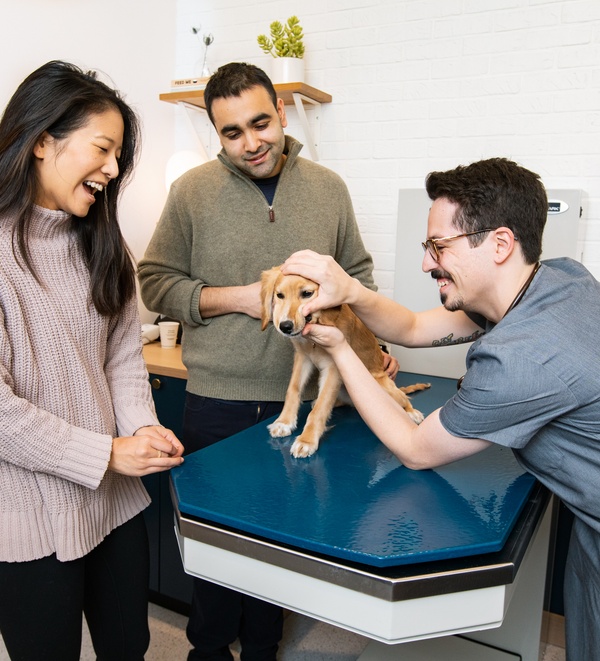
Q&A: Common Questions about Dental Cleanings for Pets
Regular dental cleanings for pets are of paramount importance to their overall health and well-being. While the prospect of a dental cleaning may seem daunting, it's crucial to understand that they are both safe and necessary. Dental issues can lead to serious health problems in pets and routine cleanings help prevent potential issues, ensuring healthy teeth and gums. We chatted with Dr. Gabrielle Fadl to answer a few common questions about dental cleanings.
Why are dental cleanings important for pets?
Just like us, our pets should have their teeth brushed daily to prevent oral disease. On top of daily oral care, an annual professional dental cleaning will help maintain your pet’s oral health and prevent systemic disease that could affect vital organs such as the heart and kidneys. Without regular cleanings, plaque/tartar will build up on your pet’s teeth, leading to bad breath, gum disease, periodontal disease, tooth decay, potential tooth loss and more.
You May Also Like:
What should I do if I’m unsure if my pet needs a dental cleaning?
If you're unsure whether your pet requires a dental cleaning, it's best to schedule an appointment with your veterinarian. They can conduct a thorough examination and recommend a dental cleaning if necessary. Regular check-ups are essential for monitoring your pet's oral health, as an oral exam is part of every nose-to-tail exam.
What does the veterinarian look for during a dental appointment?
During the dental appointment, the veterinarian will examine your pet's mouth assessing their oral health. The doctor will note any signs of periodontal disease, misalignment of teeth, tooth decay, tooth fractures, gum disease, oral tumors, and other dental issues. After assessing the overall health of your pet’s mouth, the doctor will recommend a treatment plan.
My doctor recommended a dental cleaning — what happens during the dental procedure?
A dental cleaning is done under general anesthesia — your pet will be carefully and monitored by the doctor and veterinary nurse. (Your pet will undergo pre-op bloodwork to ensure they’re fit for anesthesia.) While your pet is under anesthesia, the veterinarian will conduct a thorough examination of your pet's mouth by probing the teeth and will take oral x-rays to see what’s happening below the gum line. The dental cleaning includes scaling and polishing (just like humans), removal (extraction) of any infected teeth (if indicated), and the application of a dental sealant.
Do I have to leave my pet during the dental cleaning?
Yes, most dental cleanings require your pet to be under general anesthesia. This ensures their safety and comfort during the procedure — no pet would sit still while doctors examine, scale, polish, and remove teeth. You'll fast your pet starting the night before, then drop them off at the clinic for the duration of the cleaning and recovery period. Your pet will be ready for pickup in the late afternoon or early evening.
How long does the dental cleaning process take?
The duration of a dental cleaning can vary depending on a few factors: the extent of the cleaning needed, the presence of any dental issues and dental disease, the need for extractions and the efficiency of the veterinary team. On average, a dental cleaning can take anywhere from 30 minutes to a few hours.
How much does a dental cleaning cost?
The cost of a dental cleaning can vary depending on factors like the location, the specific services required, and any additional procedures (such as extractions) that may be needed. Our surgery concierge will provide an estimate that covers a range based on the state of your pet’s oral health at the time of exam. If the doctor discovers further issues during the dental cleaning, they’ll get in touch with you to discuss next steps. More serious dental disease will cost more to clean, so we encourage you to invest in daily dental care, and to keep in mind that investing in your pet's dental health now can prevent more costly and serious health issues down the line.
Dental cleanings for pets are essential for their overall health and well-being. While they may seem intimidating, these cleanings are safe and necessary to maintain optimal oral hygiene in our furry companions. Think your pet may be due for a dental? Learn more by clicking the link below.